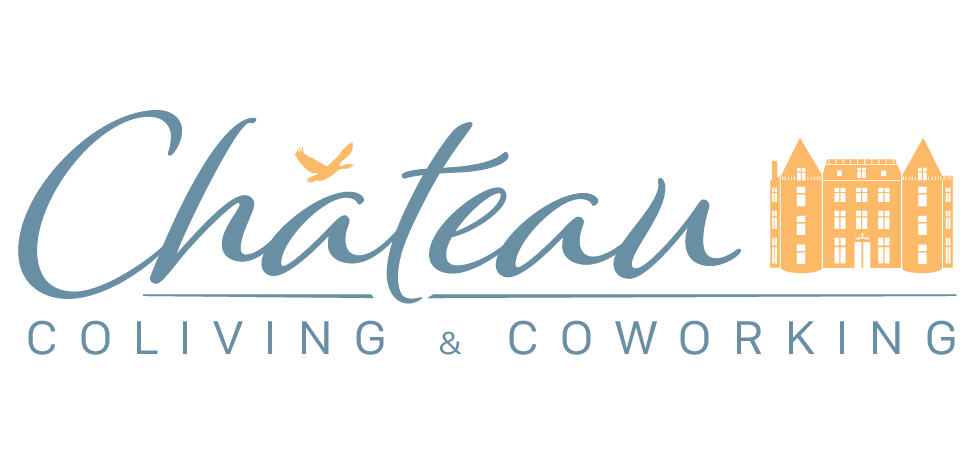FAQ For New Nomads
Coliving has recently become one these very controversial topics. There are the experienced colivers who swear by it and are convinced that it’s the best way to travel and work remotely and those who have heard negative options or have had a bad experience once and then paint all coliving spaces with the same brush.
Many professionally run and community driven coliving spaces are having a hard time to justify the difference between shared housing, serviced apartments, hostels or hotels that are trying to catch the trend and branding themselves “coliving”. This often results in clients getting confused and becoming reluctant to try or to give coliving another chance after having a disappointing experience in one of these places.
This post is for all of you who are curious but also cautious about coliving and not sure if it is for you.Below we have gathered the questions we get asked the most and to answer in an honest and objective way. Hopefully this will make you evaluate if the place you have been disappointed by is well and professionally run or if you should give coliving a try in the first place.
Spoiler alert: coliving is not for everyone and we will not try to convince you that it is. The only thing we’re sure of is that, without trying, you can not know.
Let’s get started:
What if I don't get along with someone?
That is probably the number one question, together with privacy.
That is perfectly normal and to be expected. The good news is that you don’t have to become best friends with everyone. Being respectful and polite is enough. In many coliving spaces, there are usually enough colivers (and space) in order for you to find people you resonate with. If this is something you’re particularly concerned about, we’d recommend choosing a community with over 12-15 people and keeping the smaller spaces for later.
However based on our experience, having colivers who don’t get along at all is extremely rare. As we said, this lifestyle is not for everyone and if you’re already here, chances are that you’ll be on a similar path or share at least some values and views of life.
We find that if people follow these simple guidelines, living together goes smoothly for everyone:
– respect yourself and others. Express your boundaries and acknowledge others’ (read more about that below)
– communicate clearly and calmly
– Participate and engage (to the level that feels comfortable for you. Note that in a coliving, no activities or events should be mandatory and if you don’t want to participate – there should be no pressure or questions asked)
– Clean after yourself and leave the space in the state you wish you had found it
Of course, if conflicts arise, that is another situation. We have elaborated on it in a separate point below.
What if I don't feel like hanging out with people all the time?
To be honest, we would not recommend hanging out with people 24/7, no matter how much you like the people. You’ll get burnt out.
It is totally fine to stay away at times, to relax in your room some evenings, to go on your own adventures. It’s part of the coliving culture to respect the needs of others and not to put social pressure or have expectations towards fellow colivers.
Of course, if you foresee that you will not want to engage at all during the length of your stay it might be good to reconsider if a hotel or Airbnb is not what you need at that time. But otherwise, some alone time is completely normal and healthy. And we all have our own needs and thresholds.
This is especially true if you’re an introvert, like more than half of our colivers at the Château. We have this image of digital nomads being all badass travelers who have lived countless adventures while becoming best friends with a thousand people. Truth is, a lot of the people you’ll meet in coliving spaces are more introverted or a bit shy and take this opportunity to open up and make friends in an environment that feels safe and suitable. This dynamic creates beautiful interactions and an essential balance in the community. Coliving communities need ALL personality types and there’s not one that will fit better than the other.

Isn’t it just weird for adults to have roommates?
That’s a good one.
We would argue that it is weird to spend most of our adult lives alone or with just 1 person. There is so much we can learn from others! Community is something you don’t realize you need until you experience it. Human beings are by essence social creatures and we’ve lived in tribes since the beginning of time. Individualism and capitalism have convinced us that this was not relevant anymore. Truth is, we still need it and maybe current society has decided it is unacceptable, but try it and see what YOU think for yourself.
Talking about roommates, you’re probably picturing a student room with 6 people in bunk beds, yet, coliving spaces usually provide a lot of space, comfort and amenities. Collectively, we can get so much more. For example, living on your own in a 12th century castle with a huge private park is probably not accessible, yet sharing one can be.
This leads us to the next question 👇
I can rent an airbnb for the same price (or less)
For sure. And if this is what you want we encourage you to do just that.
However, Airbnbs are not curated for remote workers’ needs. Colivings are. Yes, you can now find Wifi speed in most listings but, knowing that someone created the space with the intention of making productive work a priority is another level: we’re talking comfortable chairs, light adjusted for remote working, variety of desks, special call booths, coffee always available, and most of all other people who are also working and happy to share, have a casual work-related chat and give you advice if needed. Priceless.
That being said, it is often difficult for new nomads to understand (and that is totally normal) that what you pay for in a coliving is not the room. Not the square meters or the amenities even. You pay for a Coliving Experience.
It might sound vague, but it is true.
A friendly face at the breakfast table, a state-of-the-art coffee made by a barista housemate, an impromptu game of Catan after a long day of work, a day at the beach thanks to a coliver’s car, discovering a new dish from across the world…all of those things and so much more are nearly impossible to experience when you are in a hotel or Airbnb on your own. Once we get out of University, making new friends becomes a project. Not an easy one. Coliving allows you to meet new people, grow a network and make lifelong friends all the while experiencing new things.
So there you have it. It is hard to put a price on Community and belonging.
It’s just an overpriced hostel
Well, that’s just not nice. And coming from someone who has never stayed with us (or any of the coliving spaces that we’d recommend), because we are convinced that’s the case if you make this statement.
As we mentioned above, a lot of hostels and other types of housing solutions are now calling themselves “colivings” to attract digital nomads and raise their prices. Make sure to do your research before booking. If it says “hostel” anywhere on the website or social media, even next to the words “coliving” or “social”, that’s not it! If you can book just for just a couple of nights without a minimum stay, we also advise you to look elsewhere. Lastly, be careful of places that are mixing populations: digital nomads working and taking it slow + backpackers or people on holidays = not a coliving experience!
If you’re still not convinced, we dare you to find a hostel that offers what we offer and the rooms that we have! No bunk beds or messy communal spaces at Chateau Coliving: shared bathrooms are only shared between 2 bedrooms where each room has a direct private access to the bathroom. And when we say shared bathrooms, think bigger than the size of an average city bedroom, huge bathtub, shower and amazing views. Massive communal spaces, the coworking of your dreams and not to mention historical artifacts, tapestries, hand-carved wooden chairs, a private forest with the occasional deers…
Yes, there are several of us living there but why would we keep this place to ourselves?
But, this article is not only about Chateau, we’re thinking about the beautiful and recently renovated communal kitchen of Nine Coliving (designed by Marta Kluk), the amazing pool at Greek Escape, the super comfy rooms of Cloud Citadel, just to name a few.
What if people party all night and I can’t work?
Once again, we are not hostels. Of course, we like to celebrate and we host the occasional parties but we are digital nomads and remote workers ourselves. We have to get work done too, so we have ground rules around working times and social times.
The great news is, in Château, we have a lot of space. So there is always the possibility to party in a different building or outside around the campfire and tent, or even work from another room!
Parties are discussed and planned together during weekly Family meetings, making sure that it won’t bother anyone who doesn’t want to be part of it. And when it comes to parties, be assured that we’ve got you covered: karaoke machine, disco lights and sound system, music instruments, costumes etc. but we’re all adults here and we make sure to handle it as such.

What if people are much younger/older than me?
Well wouldn’t that be wonderful?
We are stuck with the same age group since kindergarten, with people with the same background, culture and upbringing as ours. It’s about time we mix it up a bit.
Jokes aside, while the average age in many coliving spaces is between 30 and 40, we, at Chateau, welcome a wide range of ages from early 20s to late 60s, and even families with kids in our 2nd building. We believe that this adds huge value and makes it all so much more enriching than if we just surround ourselves with people who are exactly the same as us. When everyone is welcome and encouraged to be themselves, it is powerful. What matters is finding beauty in our differences and valuing the things we have in common: a love for exploring, remote working and meeting people from all over the world. After a few days, we all forget about ages anyway.
I am worried I will not get any privacy.
A fair question. We would not worry about that. The castle, manor, and castle grounds offer a myriad of opportunities for alone time. In addition, unless you are coming as a couple, you will have your very own room to retrieve to in case of social overwhelm. This is true at Château or in most rural colivings (poke Anceu Coliving, Burgas Coliving, Alpiness) but in some spaces, especially in cities, you might not find actual “empty” space suitable for alone time beside your room. In this case, make sure to do things outside the coliving on your own: go to the movies or for a beach walk, book a class in a nearby yoga studio, find a coffee shop you like… anything close to your interests allowing you to recharge.
What happens in case of conflicts?
Living together is wonderful but it only works if we all respect the fact that everyone is different and will understand and interpret things based on their own experience, history, background, and knowledge.
That is the healthy challenge that coliving brings us and what helps us grow.
In time, conflicts will appear. It is inevitable. We are all humans with our flaws, our moods, and our habits after all.
What is evitable, however, is to let that conflict grow and implode, ruining everyone’s experience.
There are a few basic things to remember, to help you approach potential conflicts. Here are our top 10.
- Don’t avoid it. It might feel easier to hide and pretend it is all fine but, especially if you are staying a long time with us, it will only grow and frustrate you. Better to talk it out before it becomes out of hand and gossip starts.
- Common sense is not common. Never assume that everyone will do things the way you do because that’s how “everyone does”. We all come from different places, backgrounds, educational systems, and cultures.
- **Know your boundaries – express them kindly -**What is private, what is shared, when is “me time” and “hang out” time. Be ready to express them but also receive that information from others and respect it.
- Know when to give feedback – Sometimes it is just not the right time. Sometimes the emotions are too intense, the atmosphere is too charged and everyone needs to cool down. Take that time, reflect, and write it down. Come back to it later. Remember the golden rule: Praise in public, (constructively) criticize in private. Always.
- Never gossip – Gossip is Community’s cancer. It grows quickly and can kill trust.
- Communicate non-violently – Observe the facts, identify your feelings and needs, and express them clearly and without putting blame. (Reading tip:” Non-Violent Communication” by Marshall B Rosenberg
- Talk it out face to face – it is sometimes easy to hide behind a screen, but writing can be misinterpreted.
- Show empathy
- Show vulnerability – It builds trust. Trust us!
- Give before you take – Whether it is time, care, help, advice, a hug, or just a smile, it makes all the difference and turns a house into a home, and a housemate into a friend.
Remember, you are not required to all become friends for life (although with some people you will). What you are expected to do though, is show respect and accountability to your fellow residents.
Sometimes, all of this is not enough, and you might feel stuck in a conflict with someone. It happens. In that case, it might be a good thing to go to a third party who is impartial and can help defuse the conflict. You can always talk to your community manger. This is what makes the difference between a professionally run coliving space and a house-share. There are Community Facilitators. Not only do they enable colivers to organize and co-create a memorable experience, they are here to ensure that the community stays healthy and that guidelines are met and policies are actually enforced. This sometimes looks like being the “bad cop” but it also means you won’t have to take on this role.
Help, I have FOMO and can't concentrate on my work.
Many of us experienced that for the first few times we colived.
It is suddenly all so exciting and addictive. All these interesting people to talk to, all these places to see and activities to join.
That is also why, unlike hostels, most community driven coliving spaces have a minimum stay. It takes time to adjust and to fall into a productive work routine after a travel day.
It is normal the first few days, sometimes week, to experience the “Honeymoon” period and jump from one workshop to another, one conversation to another and during the weekend you realize you are behind on your deadlines.
Soon enough though, you’ll learn to prioritize and balance it all. The good news is you can always talk to other more experienced colivers about it and get useful hacks. The Fear of Missing Out is real in coliving but remember, there will always be a next time.
In our best efforts to reduce FOMO and social overwhelm, we have recently changed not only our minimum stay but we will also have the same group of people staying together for a whole month. Read more about that here.
I understand it's not comparable to a hostel, nor an airbnb, yet what justifies the price ?
Coliving spaces were scarce in the beginning, but today you can find great ones that fit most budgets.
Even in a castle, you can opt for a budget room that would cost less than renting a parking spot in some cities (true story!).
In general in a coliving space there’s much more than the accommodation rate. It also includes all utilities, cleaning service, often 1 or 2 meals a week (in our case, we have a weekly brunch featuring Normandy specialty: Crêpes), coworking space, coffee, tea and all cooking essentials, yoga classes, trips or other activities – that’s just to name a few things that would add up on top of the budget of an airbnb.
In addition, most coliving spaces have professionalized and also pay for (more than 1) community manager and property manager, people working behind the scenes on communications, bookings and customer service, there’s usually a mortgage involved, business costs like accounting, taxes, insurances and many more. Not to mention maintenance, renovations and investments.
While, if run well, coliving might feel like a group of friends sharing a house and just having fun, in a professionally run coliving space you get to enjoy a completely care-free beautiful living experience, because someone else is taking care of all the rest. And this is also what you pay for.
Château case is also very specific. In a 12th century Castle, any kind of work or renovation is at least double the cost, more likely 5 times more than what things would cost for a regular house. We’re talking about heating an enormous space, having to rent special equipment and professional teams for any maintenance works (hello, historical monument!), having to order custom made everything – from windows to tiles, and managing a private park that is more than half the size of Hyde Park.
All of that costs a lot more than for most other places you’d visit, yet we’re proud that we’re still managing to keep our rates comparable and often less expensive than other spaces in the Western world.
Lastly, different regions mean different costs. For similar quality, a space in France or Switzerland should normally not be the same price as one in much cheaper regions of Europe or Africa and Asia.
There are many more questions and misconceptions we could have written about. This is not exhaustive but we hope this will help you understand better the ins and outs of community focused coliving and inspire you to try it. And if you still have doubts, our Coliving Debunk Month, in May 2024 is the perfect occasion to give it a shot.
This is the end, friends, if you’ve stuck with us until here, congratulations, you’re probably ready to join us (and you can use the code 10DEBUNK in May) 😉
If you have more questions. Let us know here and we will be happy to answer them.
If you want to know more about real coliving experiences, you can also read Théo, Sarah, Sunny or watch @Aprildays video


